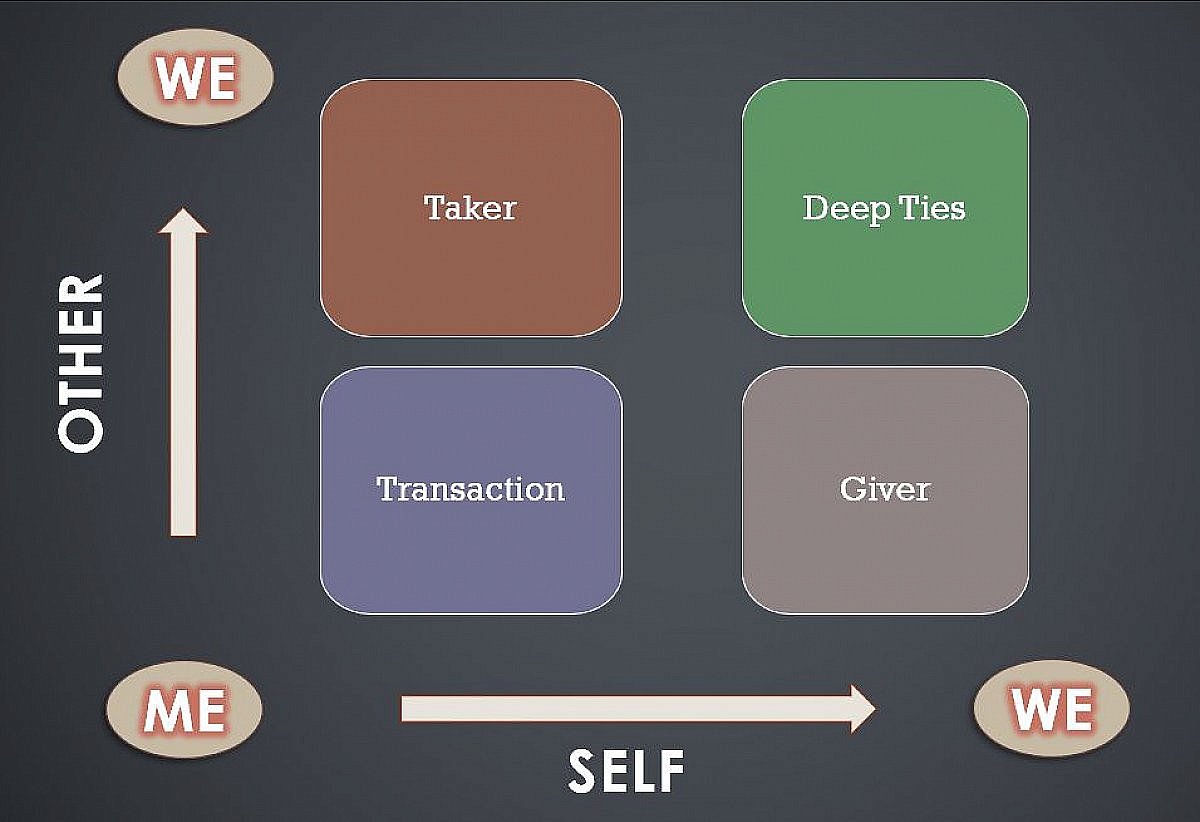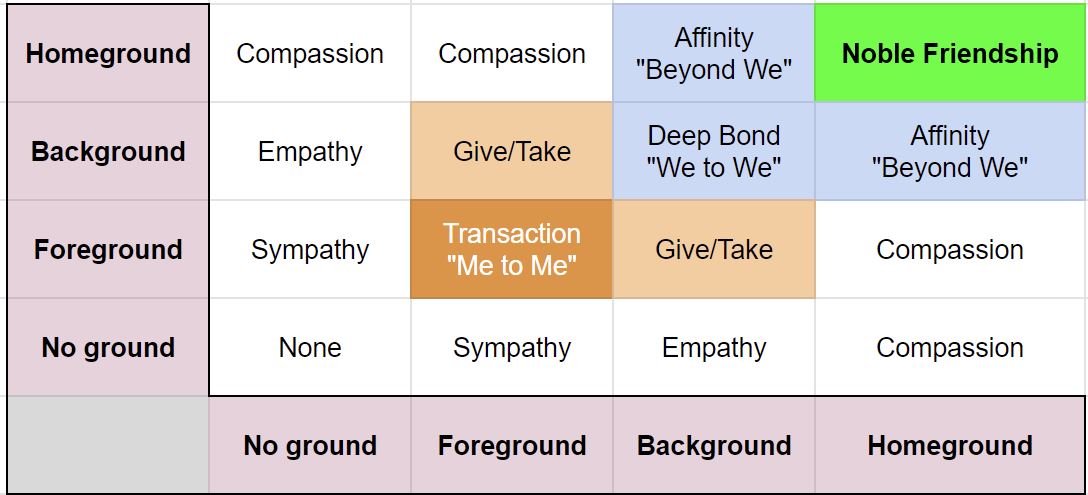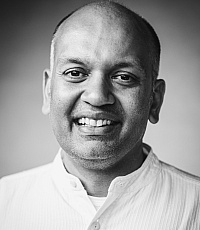Nipun Mehta, Feb 8, 2022 in Resolution22
As a Pod completes, it's common to ask, "How do we stay connected?" And in our year-long Resolutions pod, people will want to create those as we proceed. We all know the pitfalls of networking and sense the merits of noble friendship, but it feels like there's lots of fuzzy stages along the spectrum. Typically, we offer this kind of an explanation:
Part of what makes the Pods so special is context. Not only does that context animate the content in a very unique way, it also changes the way in which we connect. “How can we stay connected?” then translates into multiple nuanced questions: “How can I stay connected to the part of myself that has awakened in the Pod context? And how can I stay connected to others, who share mutual interests and values? And how can our relationships stay embedded in a co-creative field of transformation?” That expands the question of me-to-me connections into a field of we-to-we relationships, and even subtler beyond-we affinities.
Below are a few ways to deepen our connection while retaining our precious context of inner transformation and compassionate action.
Some of those questions warrant a deeper exploration.
We live in a terrifyingly isolated culture -- which then, invites us to grasp at connections in terms of quantity instead of quality. That, unfortunately, ignites a self-defeating pattern of even greater isolation. Everywhere, we see connections cheapening, trust diluting, suicides rising, and solutions pandering to our base impulses. As a culture, we are in desparate need of an innovation here, and perhaps Pod Platform might be able to push some boundaries towards deeper connections?
To start, let's consider the quality of connections. Here's a matrix of four basic types of connections:

One might think that everyone wants deeper connections, but how do we somehow still end up with a web of connections that is primarily transactional? Moreover, it almost feels like we are so entrenched in it that paradigm that it seems impossible and improbable to even imagine a different center of gravity. 73% of under-30 population says, "most people would try to take advantage of you if they got a chance" and "mostly, people look out for themselves."
To refine that inquiry, it helps to nuance our awareness on the me-we spectrum. John Pendergrast's framework on 'grounding' (which I elaborated in a recent talk about Gandhi's 11 vows) can be helpful here:

If we are in a state of trauma, we feel lost, ungrounded and can't locate our body; a bit more upstream, we identify strongly with our physical body and its sensory stimulation; as our sense of identity expands, our body goes in the background and ultimately we experience a deep inter-connection of the homeground. (For this post, we'll gloss over beyond-homeground states.)
Bringing both of these together brings us to something like:

We can say a lot about each of those sixteen types of connections (and naturally, our experience of it changes from moment to moment), but we can observe that society's innovations (hello, meta-verse) primarily come from "me to me" intelligence, solidified by raw ingredients (like money) that require each one us to be in the "foreground" and use accumulation as a hueristic for security. That has consistently proven to be insufficient.
In the pandemic, people are craving offline connections -- but all the problems of isolation, polarity, health, teen suicide, and more have been alarming long before the last two years. Surely, in-person bonds are far more multi-dimensional and resilient, but that is more a function of our awareness than it is the proximity of our bodies. We all know the feeling of being at a larger party and still feel lonely, isolated and disconnected. Even with loved ones, we have been in an "Alone Together" pattern long before the pandemic.
So, how can we build a "we to we" field whose collective emergence organically supports the whole? Entities rooted in 3 M's (markets, media, and military) are ill-equipped to hold that question. Hence, they don't. But perhaps we might be able to explore this a bit more.
What are the systemic nudges can help us move from me to we? Which multiplier effects get triggered as we near the "we to we" web of relations? What designs draws a throughline from any spot in the matrix towards "noble friendship?"
Using the accumulation mindset to connect is a bit like playing the lottery -- we are playing dice without any evidence of success. "I am lonely but if only I had a dozen good friends ...", "I am suffering and if I only had kind hearted community that would care for me ...", "I have a project that will save the world, and if only I had a hundred backers or a bigger funding ...", "I don't really know what will make me happy, but maybe this person will complete me." Of course, it is not that dozen good friends or a hundred backers or a million dollars don't serve any purpose, but how can we orient the arc of all those interactions towards noble friendship?
How might a platform nudge each "me" impulse towards "we" through small acts of service? What behavior should a platform amplify and what boundaries should it draw to retain a center of gravity that is anchored in a "we to we" field?
With all that context, :) let's consider a practical scenario.
Let's say we have two people with some version of this story: "I have a project intention. I need the help of others to fulfill my project. I want to serve the world, help other podmates and be kind to myself too. I also have mixed up agendas that I'm not always mindful of -- I'd like to solve Climate Change; I might be looking for a job later and could benefit from some networking; I have a dream and am looking for a missing piece of my puzzle. I find meaning in being with others. Ultimately, I understand that my 'I' cannot recognize the 'we', so a we-to-we connection is beyond my ego's comprehension."
How do we skillfully connect two entities with mixed intentions (Me + We intentions) such that their overall journey lands them in a we-to-we field? And, at a personal and meta level, what is the architecture of a space in which connection growth reduces the me:we ratio in the web?
